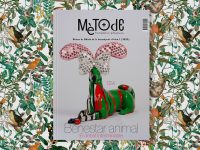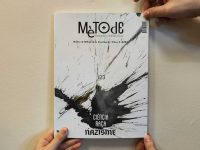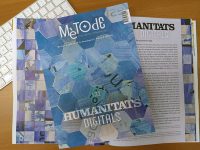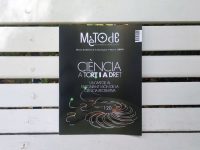«Willpower hijacked», new Mètode monograph
Issue 109 of the journal delves into the phenomenon of addiction
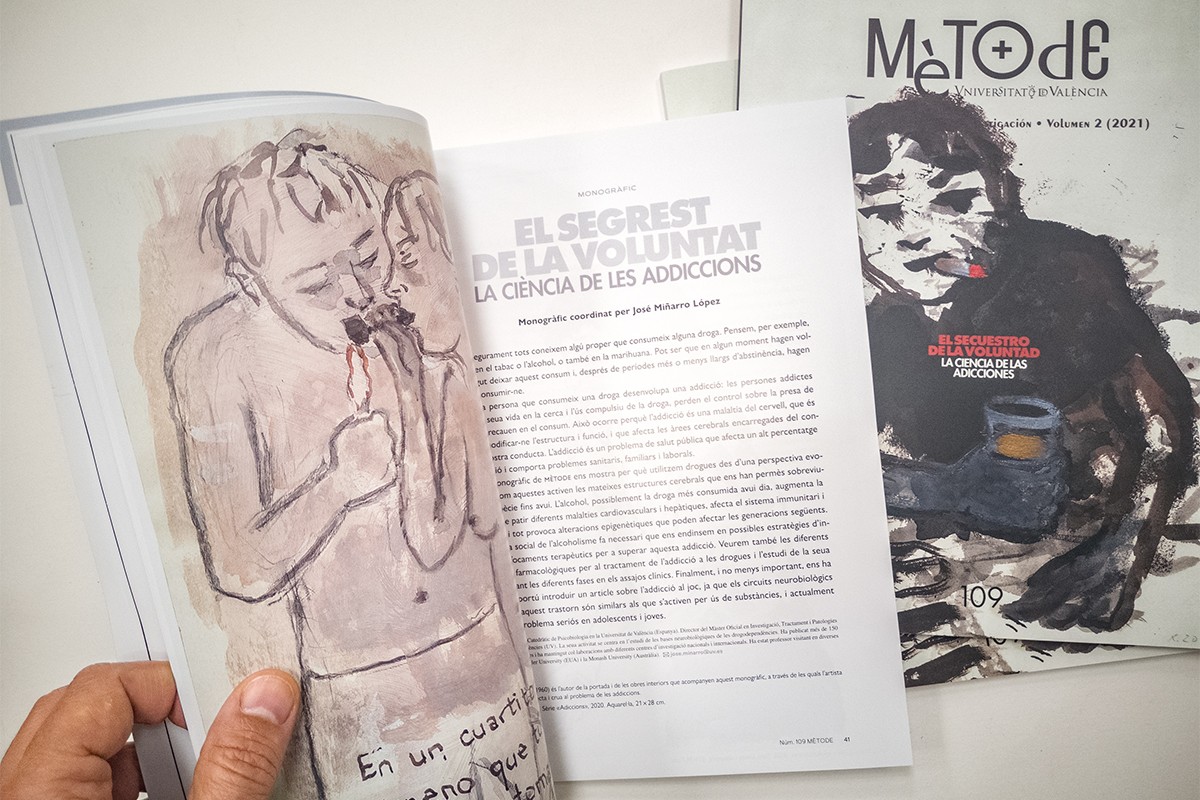
Addiction to legal or illegal substances has traditionally involved a stigma for those who suffer from it. The idea that overcoming an addiction to alcohol, cocaine or painkillers «is just a matter of willpower» has long been overcome in professional and academic circles, but still persists in the social imagination. But the fact is that addiction is a disease whose origin involves a wide variety of factors, and recovering from it is a complex process that may require different therapeutic approaches.
The new Mètode monograph, «Willpower hijacked: the science of addictions», has been coordinated by José Miñarro López, Full Professor of Psychobiology at the University of Valencia, and provides an in-depth analysis of addictions, from the anatomical structures that make them possible to disorders that go beyond the framework of substance use. José Miñarro and professor at the University of Zaragoza Carmen Ferrer-Pérez open the monograph with a text exploring the phylogenetic roots of the brain’s reward system, a key factor contributing to substance abuse’s hijacking of our willpower. Arantza Sanvisens and Robert Muga, researchers at the Germans Trias i Pujol Institute in Badalona, analyse the effects of alcohol use disorder on the human organism. The therapeutic pathways to recovery available to people with alcohol addiction are explored in a paper by Rosa Jurado-Barba, coordinator of the Psychophysiology Laboratory of the Biomedical Research Institute of the Hospital 12 de Octubre in Madrid, and her collaborators. Ivan Montoya, deputy director of the Division of Therapeutics and Medical Consequences at the US National Institute on Drug Abuse, talks about the available pharmacological options to fight drug addiction. Finally, Susana Jiménez-Murcia, coordinator of the Pathological Gambling Unit at the University Hospital of Bellvitge-IDIBELL, together with her team, offers an in-depth analysis of gambling addiction.
The cover of the issue and the works that accompany the monograph were created by Xisco Mensua, who adds another raw yet evocative layer to the phenomenon of addictions
150 years of the Royal Spanish Society of Natural History
This issue also features a review of Antoni Prevosti‘s academic life. He is one of the key figures in the development of genetics as a discipline in Catalonia, and Francesc Mestres, professor at the University of Barcelona, is the author of the article. On the other hand, Isabel Pont Niclòs and Jorge González García, researchers at the Institute of Molecular Science of the University of Valencia, bring us a paper on DNA G-quadruplexes, a fascinating structure whose study is opening the way to new therapies. In addition, we celebrate the 150th anniversary of the Royal Spanish Society of Natural History with a special dossier containing three articles that will take us on a journey through one and a half centuries of naturalist associations in Spain. As always, the usual Mètode collaborators close this new volume of the journal.

